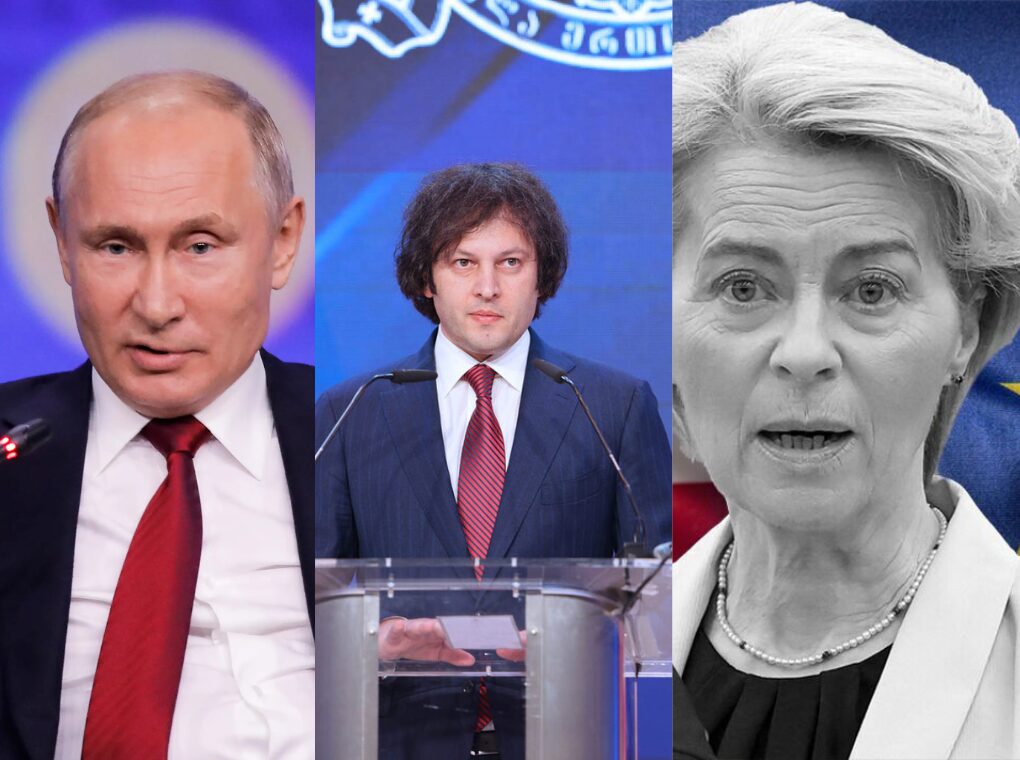Thousands of Georgians have taken to the streets of Tbilisi and other major cities following the municipal elections held on October 4, 2025, which saw the ruling Georgian Dream party secure a sweeping victory. Protesters waving European Union and Georgian flags allege widespread election irregularities and demand a re-run, highlighting the sharp political divide in the country.
The unrest has drawn intense attention both domestically and internationally. Unlike neighboring countries such as Moldova and Romania, where pro-EU parties recently secured electoral victories with minimal public demonstrations, Georgia has seen its streets filled with chants, barricades, and clashes with riot police.
Analysts point to the contrast as evidence of the unique dynamics in Georgia, where a pro-Russian win appears to have sparked far greater public outcry.
Clashes and Civil Unrest
In central Tbilisi, protestors gathered in Rustaveli Avenue near the Orbeliani Palace, the residence of pro-EU President Salome Zourabichvili. Videos circulating on social media showed demonstrators hurling fireworks and attempting to breach security perimeters while riot police responded with water cannons and tear gas. Reports indicate over 100 arrests since the start of the protests, with journalists and opposition leaders among those targeted.
Prime Minister Irakli Kobakhidze has condemned the protests as a “foreign-backed attempt to destabilize Georgia,” alleging that opposition figures are coordinating with international organizations to challenge the legitimacy of the election. Officials also cited the role of NGOs receiving EU funding as evidence of external influence in domestic politics.
Protests Reflect Geopolitical Tensions
The protests in Georgia carry a clear geopolitical undertone. Many demonstrators emphasize their desire for closer ties with the European Union, reflecting the results of a 2022 referendum in which 80% of Georgians supported EU membership. For critics of the government, the victory of a pro-Russian party threatens to stall Georgia’s European ambitions and further entrench Moscow’s influence in domestic politics.
While the EU has consistently denied direct involvement in the protests, critics argue that the scale and organization of the demonstrations suggest significant backing from Western-aligned civil society networks. Brussels, meanwhile, has frozen €30 million in aid to Georgia in response to the government’s “foreign agents” law, a move interpreted by some as a warning to authorities against cracking down on NGOs and civil society.
Regional Comparisons
The contrast with Moldova and Romania has drawn attention. In Moldova, the parliamentary elections held on September 29 resulted in a decisive victory for President Maia Sandu’s pro-EU Party of Action and Solidarity, with around 55% of the vote.
Despite Russian attempts at interference—including disinformation campaigns and diaspora-targeted vote manipulation—the post-election period remained largely calm, with only minor protests from pro-Russian factions.
Similarly, Romania’s May 2025 presidential runoff saw pro-EU centrist Nicușor Dan defeat nationalist George Simion. While the campaign had been contentious, Dan’s victory did not trigger widespread unrest, and the country’s political institutions continued to function without major disruption.
In Georgia, by contrast, the combination of a pro-Russian victory and organized protest has highlighted a stark asymmetry. Political analysts suggest that this pattern points to the influence of external actors, noting that large-scale mobilizations tend to occur predominantly when pro-Russian parties succeed in elections.
Voices from the Ground
Protesters argue that their actions are a legitimate expression of democratic will. “We are here to defend Georgia’s future in Europe,” said one demonstrator in Batumi. “Our voices cannot be silenced.”
Opposition leader Levan Khabeishvili has accused Georgian Dream of “carousel voting” and intimidation of pro-EU voters, citing similar irregularities from the 2024 parliamentary elections. Human rights groups, including Amnesty International, have reported multiple instances of police harassment and arbitrary arrests during the rallies.
International Reactions
European Union officials have called for calm, emphasizing the right to peaceful protest while insisting that the EU has not orchestrated demonstrations. Russian state media, on the other hand, has amplified claims of foreign interference, framing the protests as part of a broader strategy to encircle Moscow and undermine pro-Russian governments in the region.
With tensions escalating, the political future of Georgia remains uncertain. President Zourabichvili has urged dialogue and international mediation, while opposition leaders have signaled their intent to continue demonstrations if their demands for fresh elections are not met.
As night falls over Tbilisi, Rustaveli Avenue remains crowded with citizens calling for European integration, while authorities prepare for further clashes. Analysts warn that Georgia’s political trajectory may well serve as a test case for broader regional dynamics, illustrating the fine line between domestic democracy and external influence in a country caught between Europe and Russia.
